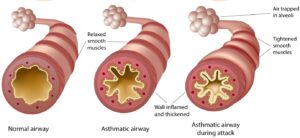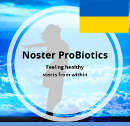Asthma history goes back a long way. The first reference to it is in a Chinese document dated 2600 BC (almost 5000 years ago).
In 1792-1750 BC, Babylon, the “Code of Hammurabi” recorded the symptoms as well.
The father of modern medicine, Hippocrates, is believed to be the first person to use the term “Asthma”, meaning wind or to blow, in his Corpus Hippocraticum.
In the time of Alexander, the Great (356-323BC) smoking the herb stramonium (an anticholinergic agent related to drugs used in modern inhalers) was used to relax the lungs.
The Romans also knew of Asthma and described it as gasping and unable to breathe without making a noise. Pliny the elder (about 50 AD) recommend “ephedra” (similar to ephedrine) in red wine to treat breathing difficulties due to pollen.
 The Jewish Talmud (200-500 AD) described asthma treatments. Maimonides (1135-1204 AD), a Jewish scholar and physician, prescribed in his “Treatise on Asthma”, rest, good personal and environmental hygiene. He also recommended the avoidance of opium (love that). He had a diet that allowed for a little wine but fruit, cool vegetables, legumes as well as nuts and milk were forbidden. He did recommend “Soup of fat hens”
The Jewish Talmud (200-500 AD) described asthma treatments. Maimonides (1135-1204 AD), a Jewish scholar and physician, prescribed in his “Treatise on Asthma”, rest, good personal and environmental hygiene. He also recommended the avoidance of opium (love that). He had a diet that allowed for a little wine but fruit, cool vegetables, legumes as well as nuts and milk were forbidden. He did recommend “Soup of fat hens”
In 2001, 1 in 14 (about 20 million, or 7%) suffered from asthma in the United States. This has increased to 1 in 12 people (about 25 million, or 8%) in 2009. This condition along with other autoimmune diseases are on the rise. This is parallel with the rise of Caesar births. This is also very telling in 2008–2010, asthma was higher among children than adults. Almost 3 500 adults died from asthma in 2007.

